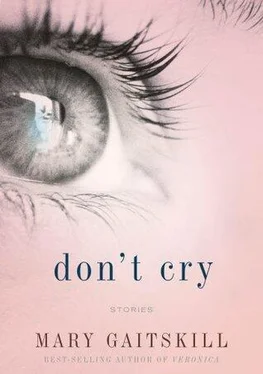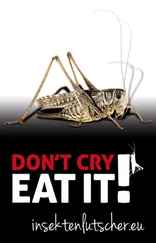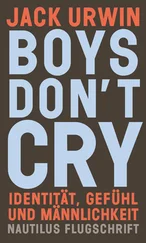Inside, the shop gleamed with glass and halogen light and dozens of little bottles. Shallow cardboard boxes of scarves were displayed under a glass countertop with neat shelving; whimsical hats sat atop Styrofoam dummy heads. She tried on hats before a mirror in a plastic frame, and the finale from act 2 of The Mikado played in her head — she knew it from the recording Mac used to have, which had somehow disappeared after the funeral.
“That looks good,” said the woman behind the counter.
“Thank you,” said Bea, and good feeling rose through her. Characters were threatened with boiling in oil and beheading and forced marriage — and in between, the full cast was onstage, singing with urgent joy. “As I drew my snickersnee!” sang Livia. “My snickersnee!” Ten-year-old Beatrice pretended to cower on her knees before her sister's snickersnee. Pitty-Sing, the cat, tore through the room. Tomasina whooped and forgot about the play; their mother was coming up the walk, stripping off her clothes because it was hot and she was too imperious and impatient to wait till she got through the door. Her daughters ran to the window, bursting with admiration for the long, slender limbs that were as strong and beautiful as the flowering dogwood she walked past. Thirty years later, Megan, chin up and arms outstretched, presented the little neighbor girls, who were bowing and tittering in their gowns and silk scarves. And she was strong and beautiful, too.
“Here,” said the saleswoman. “This scarf has a Brazilian flavor that really works with the hat.” Brazilian was a ridiculous word for the scarf, but it was arresting, with bold wavy stripes of gold and brown, and the saleswoman's brown eyes were warm and golden when Bea met them with her “Thank you.”
That weird snapshot of Susan — what had she been looking at anyway? You couldn't tell from the picture. Her big glasses had caught the glare of the sun, so that in the camera's eye she was intently blind; her small body, tensile and flexible as wire, expressed buzzing inner focus. She certainly didn't seem to be looking at the play.
“You're right,” said Bea to the lady behind the counter; “this scarf does do something for this hat.”
“On you it does.” The woman's hair was an ostentatious bronze; her skin was damaged and overtanned. But her jewelry was tasteful and her makeup perfect.
An old-school sales type, thought Bea approvingly. You don't expect to find that at an airport. “I'll take them both,” she said.
Pleased with her purchase, she continued down the corridor toward her gate, past more gleaming eateries and shops. Her thoughts now were suffused not by The Mikado , but by the look Susan had on her face when her sister presented that childish spectacle in the garage. It occurred to her that although Susan had become many things since then, that particular look of blindness and glaring sunlit vision still described her. She was a sort of therapist, and it was part of her therapy to read people's “auras,” and, by moving her hands some inches above their bodies, to massage these auras. She read tarot cards, believed in past lives, and occasionally phrases like “astral plane” versus “physical plane” appeared in her conversation. It was nonsense, but harmless and—
Should she stop and get something to eat? Here were people at an Internet café, humped over keyboards and dishes of fried food, typing with one hand while they gobbled with the other, writing e-mails and surfing chat rooms while televisions blared from every corner. How interesting it was to be a person who, while considering eating at the airport Internet café, could remember riding a mule on a mud road to get the bus to school. You used to sit in the Greyhound terminal, waiting for the bus, and except for the roar and wheeze of the buses, it was quiet and you had to really look at the people across from you. You had to feel them, and if it was hot, you had to smell them. There might be children chasing each other up and down, or men playing chess on a cardboard table set up on the sidewalk outside, or a woman holding a beautiful baby. But there was nothing to make you think you were anyplace but the Greyhound waiting room. Now people waiting to travel crouched over screens, hopping from one outrageous place to the next, and typing opinionated, angry messages — about the war in Iraq or a murder in Minneapolis or parents who were keeping their daughter alive even though she'd been in a coma for ten years — to strangers they would never see, let alone smell. Above their heads, actors silently sang and danced and fought; scenes of war and murder flashed like lightning, and heads of state moved their lips as chunks of words streamed over them. You could sit there on the physical plane, absently loading piles of fried food into your mouth while your mind disappeared through a rented computer screen and went somewhere positively astral.
No, Bea thought as she walked on. She just wanted to go to the gate. She wanted to think about riding to the school bus on her grandfather's mule, Maypo. That had happened the winter they had stayed at their grandparents’ farm while their parents looked for a place to live in Chicago, and the farm was way off the main road, on a dirt path that had treacherous ice patches in the winter. Their grandfather put all three of them up on Maypo and led them down the path to where the school bus was. It was fun to sway on the hairy, humpy back, knowing that Maypo's feet were sure. Bea remembered the way the mule's heavy hooves would make blue cracks in the ice; she remembered boughs of pine brushing against her body, thick with snow that fell off in clumps as she passed.
Megan had no patience for Susan's past lives and tarot cards. She thought it was precious and self-indulgent, and Bea could see why When Megan was fifteen and Susan thirteen, Aunt Flower, their stepgrandmother, who hated cats, told them that Grand-daddy had killed Pitty-Sing's litter by putting them in a bag and swinging them against the side of the house. In fact, more than one litter had been killed, but none so brutally, nor so late in life, and Bea saw no reason for the children to hear about any of it. Susan was already crying when she came to Bea, with Megan trailing sulkily behind, upset about the kittens, too, but provoked by Susan's wild, high-pitched sobs.
“She said … she said that Pitty-Sing was crying,” said Susan, weeping. “She said Pitty-Sing was crying, and grabbing his pant leg, begging him to stop.”
“She told us as an example of a time she had sympathy for cats,” explained Megan. “Even she was sad when Granddaddy told her about it. Because of Pitty-Sing grabbing the pant leg.”
“That is cruel; it's wrong!” cried Susan. “Granddaddy is mean!”
“Honey” Bea put her arm around Susan's hot back. “It's not the same as it would be now. There was no birth control for cats back then, and you couldn't keep all the kittens. You had to kill them; otherwise, they'd starve.”
“That's what I told her!” said Megan. “I think it's awful too, but—”
“But like that? Bashing them against the side of the house?” Susan pulled away from her mother and searched her face with wet, hysterical eyes. What was she looking for? “Something was wrong there. Something was wrong!” She turned away, her voice rising. “I hate Granddaddy, I hate him!”
“Oh shut up!” said Megan.
Bea stopped thinking for a moment and looked at the stream of faces pouring past her, young, old, middle-aged. Their expressions were tense and lax at the same time, and they moved mechanically without awareness, focused only on getting somewhere else.
In fact, Susan had been right. Something was wrong. There were only three kittens in that litter and their mother had told them they could each have one; she had already given each of them a particular kitten. Then they came home from school and she told them that Daddy had decided that having four cats was too much, and that the kittens had been taken away. It was the same summer she had come up the walk, smiling and triumphant as she stripped off her clothes, the dogwood flowering as she came.
Читать дальше












